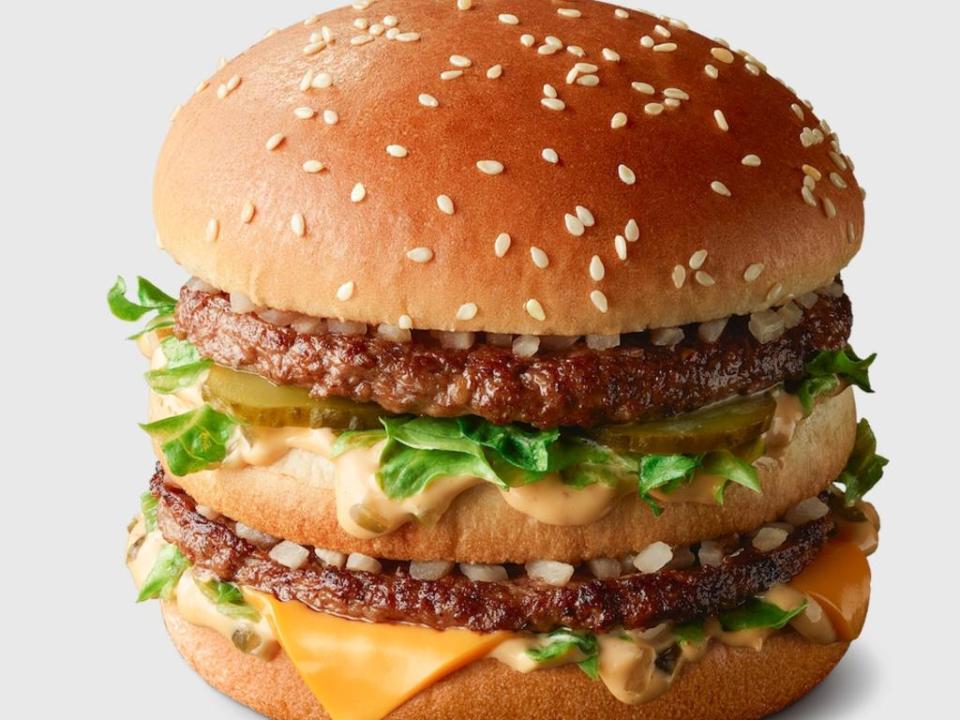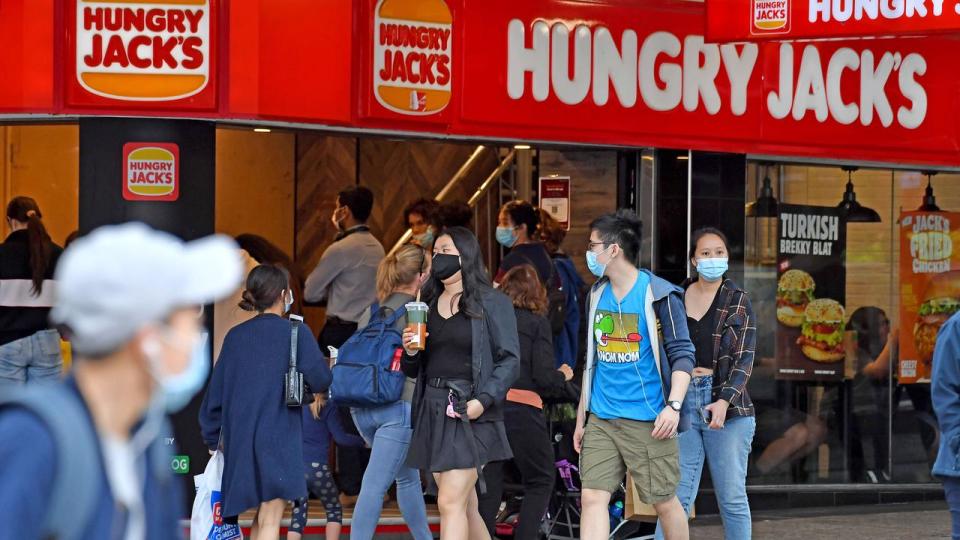Hungry Jack’s wins burger war with Maccas

McDonald’s has lost its bun fight with Hungry Jack’s after it failed to convince a court the “Big Jack” burger infringed on its “Big Mac” trademark.
McDonald’s Asia Pacific sued Hungry Jack’s in the Federal Court after its biggest rival in early 2020 launched the “Big Jack” and “Mega Jack” as a competitor to its famous burger.
McDonald’s argued before the Federal Court that Hungry Jack’s infringed on its trademarks and was in danger of deceiving consumers that its products were being sold at its rival’s stores.
In a judgment handed down on Thursday, Justice Stephen Burley ruled that Hungry Jack’s Big Jack and Mega Jack were not deceptively similar to McDonald’s burger and that they did not infringe on their rival’s trademark.
“McDonald’s pleads that Hungry Jack’s deliberately adopted the Big Jack and Mega Jack marks for the purpose of promoting in the mind of consumers a connection or affiliation between Big Mac and Mega Mac hamburgers,” Justice Burley said.


The case hinged on whether the two burgers were “deceptively similar”.
Hungry Jack’s Chief Marketing Officer Scott Baird told the court that he and the company’s marketing team decided to offer a “club-style sandwich” as a direct competitor to the Big Mac similar to the “Big King” burger sold at Burger King franchises overseas.
Mr Baird told the court while there was an “element of cheekiness” in the name of the Big Jack, he said: “I did not consider there to be any risk that consumers would confuse the trade source of the Big Jack hamburger with the source of the Big Mac hamburger.”

McDonald’s argued that the two burgers were both visually and aurally similar.
“McDonald’s submits that there is at least a real, tangible danger of confusion, or of consumers being caused to wonder whether … that the two products come from the same source,” Justice Burley said.
He found that while Hungry Jack’s sought to compete with McDonald’s, “the purpose was not to mislead but to invite a comparison and contrast”.
He concluded the “Big Jack is not deceptively similar to Big Mac” and likewise the Mega Jack was not deceptively similar to the Mega Mac.
In a statement, a Hungry Jack’s spokesperson said: “Hungry Jack’s acknowledges the Federal Court’s decision supporting the company’s right to sell and promote its registered trademarked products.”

Despite coming out the overall loser in the case, McDonald’s had one win, after the Federal Court found that Hungry Jack’s breached Australian Consumer Law by claiming in two television commercials its burgers boasted “25 per cent more Aussie beef” than the Big Mac.
The court heard that samples of the two burgers, collected at three outlets in Melbourne and Brisbane, found that the Big Mac patties weighed in at between 57.26g and 53.17g, while the Big Jack samples weighed between 64.92g and 61.98g.
The samples had a weight difference of between 12.5 per cent and 15.3 per cent.
“The above results demonstrate, with a very considerable margin of error, that the weight difference is significantly less than 25 per cent,” Justice Burley said.
“Accordingly, I conclude that the misrepresentation case is made out.”


